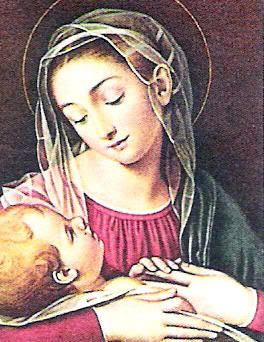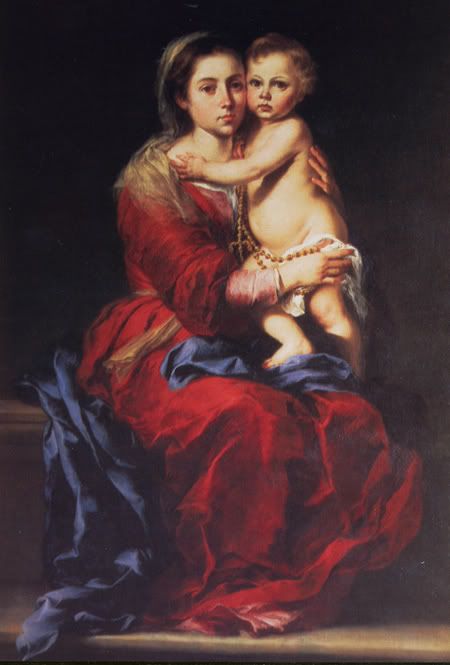Marian Mondays is a weekly post focusing on Our Blessed Mother, Mary, Queen of Heaven and Earth. In this post, we explore her life, her special mission, her sanctity, and the Biblical bases for the beliefs of the Church.
We pray with Mary. We experience her practically, emotionally, and rationally. We feel confident in the truth of her existence. We realize that she is unique, chosen for a special purpose by the Lord. And as we will see in future posts, Holy Scripture tells us that Mary was chosen long before she accepted the greeting of the Archangel Gabriel. She was chosen long before her Immaculate Conception. She was chosen at the beginning.
If we suspend our possible disbelief at that last statement for just a moment, and agree that Mary was, indeed, predestined to fulfill her loving role as the Mother of God, the vessel of the Incarnation, and the Immaculate Conception, we consider the name bestowed upon her, and the meaning ascribed to that name in Biblical and anthropological study. For her name was imporant.
Her name was Mary.
Of course, that is a translation of sorts, her likely original name in Hebrew being Miryam or Mariam. Now, as I have disclaimed in the past, I am neither a Biblical scholar nor an anthropologist. In these matters, I defer to those who are, and will attempt in some small way here to summarize the major theories of the origins and interpretation of the name of Mary.
The meaning of any name depends upon the languages and words from which is it derived, and so it is true with Mary. Depending on the language, the root words, and the order in which one studies any name, the meaning is likely to change, however slightly. And this, too, is true with study of Miryam or Miriam. For many years, theologians, historians, linguists, and anthropologists have labored over the various forms of the name Mary contained in both the Old and New Testaments. Such rigorous study has offered numerous theories on the origins and meanings, including Egyptian roots of the word, as the only Old Testament reference to the name Mary (Miryam) is Moses’ sister.
Examinations of translations of the Holy Scriptures by scholars further indicate that names were translated differently, during different periods of history, names evolving as they continue to do today. Miryam became Miriam, although alternately is also became Maria and Marian. Further, some translations appear to distinguish Mary, the Mother of God, from other women named Mary who appear in the New Testament by bestowing a slightly different variation of the name—suggesting her unique and elevated status.
Based upon this, it is assumed that Miriam is a later version of the Hebrew name Miryam, derived from the root “Mara,” which roughly translated means “well nourished,” historically interpreted at that time as beautiful and perfect. This is the most widely agreed upon meaning of the name. Alternative meanings, drawing upon the integration of Egyptian and Hebrew linguistics suggest Miryam to be a composite of the Egyptian root “mar,” meaning to love, and the Hebrew root “yam” referring to Yahweh. This would be interpreted as “one loved by God” or “exalted.” Lastly, the Hebrew root “marrar,” of which Miriam is a potential modification, is translated as “great sorrow.”
That leaves us with a few different interpretations, depending on who we ask. But does that render any one of them incorrect? I would argue just the opposite! If we take these meanings together—“the exalted one,” “the beautiful one,” “the perfect one,” “one loved by God,” and even “great sorrow”—they hold together, they make theological sense. They make common sense in light of our faith. As we consider the Lord to be all-knowing, and that His every action has a divine purpose, so, too, must we acknowledge the name of the woman He chose to mother His Son as possessing deeper meaning. In assigning this name, the world was given a foretaste of the role Mary would play in the redemption of the world—the birth of Jesus Christ, even at the cost of great personal suffering. In this light, Mary truly experiences the “great sorrow” of the world, yet is “perfect” and “loved by God.”



No comments:
Post a Comment
Thanks for leaving a comment. If you wish to submit a prayer request, however, please do so above, using the "Contact" tab.